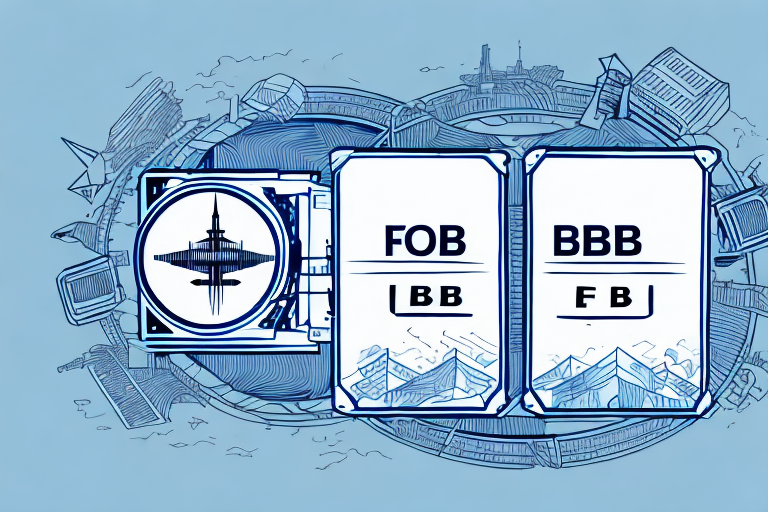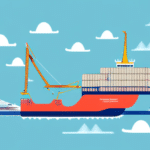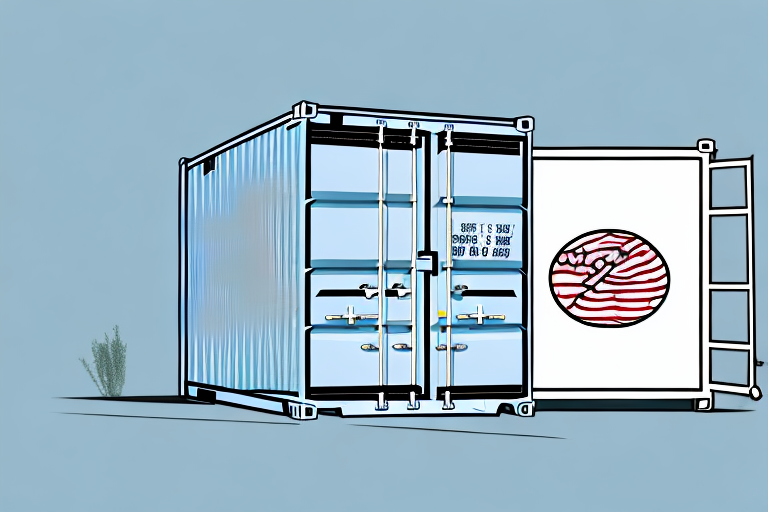When it comes to international shipping, it's essential to understand the different shipping terms used in trade. FOB (Free on Board) shipping terms are among the most commonly used, especially when trading with an overseas supplier. FOB Factory and FOB Destination are two different shipping terms used in international trade, and it's important to know the difference between them. In this article, we'll explore both shipping terms in-depth, the advantages and disadvantages of each, and how to choose the right one for your business needs.
FOB Factory: Understanding the Basics
FOB Factory is a shipping term that indicates that the buyer takes ownership of the goods at the factory or warehouse of the supplier. The supplier is responsible for loading the goods onto the carrier, and the buyer is responsible for arranging and paying for the transportation of the goods from the factory or warehouse to the destination. The buyer is also responsible for any customs clearance and import duties.
The FOB Factory term is most commonly used when the supplier has more control over the delivery of goods and wants to ensure that the goods are loaded onto the carrier in good condition and on time.
It is important to note that FOB Factory only applies to goods that are being shipped by sea or inland waterway transport. For goods being shipped by air, the term used is FCA (Free Carrier), which means that the supplier is responsible for delivering the goods to the carrier at a specified location, and the buyer takes ownership of the goods once they are in the hands of the carrier.
FOB Destination: A Comprehensive Guide
FOB Destination is a shipping term that indicates the supplier is responsible for the goods until they reach their destination. The supplier is responsible for the transportation of the goods to the buyer's designated location, as well as any customs clearance and import duties.
The FOB Destination term is most commonly used when the buyer has more control over the delivery of goods and wants to ensure that the goods arrive at their destination in good condition and on time.
One of the advantages of using FOB Destination is that the buyer has more control over the shipping process. They can choose the carrier and the route that the goods will take, which can help to ensure that the goods arrive on time and in good condition. Additionally, the buyer can also negotiate better shipping rates with carriers, as they have more control over the shipping process.
However, it's important to note that FOB Destination can also come with some risks. If the goods are damaged or lost during transit, the buyer may have to deal with the supplier to resolve the issue. This can be time-consuming and costly, especially if the supplier is located in a different country.
Key Differences between FOB Factory and FOB Destination Terms
The key difference between FOB Factory and FOB Destination terms is the point at which ownership of the goods is transferred from the supplier to the buyer. With FOB Factory, the buyer takes ownership of the goods at the factory or warehouse of the supplier, while with FOB Destination, the supplier is responsible for the goods until they reach the buyer's designated location. Another difference is the party responsible for transportation and customs clearance.
It is important to note that the choice between FOB Factory and FOB Destination terms can have significant implications for the buyer and seller in terms of risk and cost. With FOB Factory, the buyer assumes the risk and cost of transportation and customs clearance, while with FOB Destination, the seller bears these responsibilities. Additionally, FOB Destination terms may result in longer delivery times and higher transportation costs, as the seller is responsible for arranging and paying for transportation to the buyer's location. Ultimately, the choice between FOB Factory and FOB Destination terms should be carefully considered and negotiated between the parties involved.
Advantages and Disadvantages of FOB Factory and FOB Destination Shipping Terms
The FOB Factory and FOB Destination terms both have their advantages and disadvantages for both the buyer and supplier:
Advantages of FOB Factory
- The supplier has more control over the shipment and can ensure that the goods are loaded onto the carrier in good condition and on time.
- The buyer has more control over the transportation of the goods and can choose the carrier and transportation route.
- The buyer has more control over the customs clearance and import duties, which can save money on customs brokerage fees.
Disadvantages of FOB Factory
- The buyer bears the risk of damage or loss to the goods during transportation from the factory or warehouse to the destination.
- The buyer is responsible for arranging and paying for transportation and customs clearance, which can be time-consuming and costly.
Advantages of FOB Destination
- The supplier bears the risk of damage or loss to the goods during transportation from the factory or warehouse to the destination.
- The supplier is responsible for transportation and customs clearance, which can save the buyer time and money.
Disadvantages of FOB Destination
- The supplier has less control over the shipment and may not be able to ensure that the goods are loaded onto the carrier in good condition and on time.
- The buyer has less control over the transportation of the goods and may not be able to choose the carrier and transportation route.
- The buyer has less control over the customs clearance and import duties, which can result in higher customs brokerage fees.
It is important to note that the choice between FOB Factory and FOB Destination shipping terms can depend on the type of goods being shipped. For example, perishable goods may require FOB Destination terms to ensure that they arrive at their destination in good condition. On the other hand, non-perishable goods may be better suited for FOB Factory terms, as the supplier can ensure that they are loaded onto the carrier in good condition and on time.
Another factor to consider is the location of the buyer and supplier. If the buyer is located closer to the factory or warehouse, FOB Factory terms may be more cost-effective, as transportation costs will be lower. However, if the buyer is located further away, FOB Destination terms may be more practical, as the supplier can handle transportation and customs clearance more efficiently.
Which is Better: FOB Factory or FOB Destination?
The better shipping term depends on the needs of the buyer and the supplier. If the buyer wants more control over the transportation of the goods and customs clearance, then FOB Factory may be the better choice. If the supplier wants more control over the shipment and is responsible for the transportation and customs clearance, then FOB Destination may be the better choice. It's important to consider factors such as the value of the goods, the transportation distance, and the customs clearance requirements when choosing between FOB Factory and FOB Destination.
How to Choose between FOB Factory and FOB Destination Shipping Terms
When choosing between FOB Factory and FOB Destination, it's important to consider the needs and priorities of both the buyer and supplier. The decision should be based on the value of the goods, the transportation distance, and the customs clearance requirements. It's also important to negotiate the shipping terms with the supplier to ensure that both parties are satisfied with the terms of the agreement.
The Role of Incoterms in Determining Shipping Terms
Incoterms, or International Commercial Terms, are a set of international rules that define the responsibilities of buyers and sellers in international trade. Incoterms provide clarity on the shipping terms used in trade and help to avoid disputes between buyers and sellers. It's important to choose the correct Incoterm when negotiating with a supplier to ensure that both parties are aware of their responsibilities and obligations.
Common Misconceptions about FOB Factory and FOB Destination Terms
One common misconception about FOB Factory and FOB Destination terms is that they determine the place of delivery. In fact, the place of delivery is determined by the agreed upon shipping terms and the chosen Incoterm, not the FOB term. Another misconception is that FOB terms only apply to sea transport, but they can also be used for other modes of transportation, such as air or land transport.
Case Studies: Real-Life Examples of Using FOB Factory and FOB Destination Shipping Terms
Case studies can provide insight into how different shipping terms work in real-life situations. For example, a company may choose FOB Factory when they want to ensure that the goods are loaded onto the carrier in good condition and on time, but the buyer may choose FOB Destination when they want more control over the transportation and customs clearance of the goods.
How to Negotiate Favorable Shipping Terms with Your Supplier or Buyer
Negotiating shipping terms with a supplier or buyer is an important part of international trade. It's important to have a clear understanding of the needs and priorities of both parties and to negotiate a shipping term that is favorable to both parties. Some tips for negotiating favorable shipping terms include conducting research on the transportation options available, setting clear expectations and deadlines, and being willing to compromise.
Best Practices for Managing Logistics When Using FOB Factory or FOB Destination
Managing logistics when using FOB Factory or FOB Destination requires careful planning and coordination. Some best practices include choosing a reliable carrier, tracking the shipment at each stage of transportation, and communicating regularly with the supplier or buyer to ensure that any issues are addressed in a timely manner.
The Impact of COVID-19 on International Trade and Shipping with FOB Terms
The COVID-19 pandemic has had a significant impact on international trade and shipping. Many countries have imposed restrictions on trade and transportation, which has led to delays and disruption in supply chains. The use of FOB terms may become more important as buyers and suppliers seek more control over the transportation and delivery of goods.
Emerging Trends in the Use of FOB Factory and FOB Destination Shipping Terms
As international trade and shipping continue to evolve, new trends are emerging in the use of FOB Factory and FOB Destination shipping terms. These trends include increased use of digital technologies to track and monitor shipments, greater emphasis on sustainability and environmental impact, and the use of alternative transportation modes, such as air or land transport.
Conclusion: Choosing the Right Shipping Term for Your Business Needs
Choosing the right shipping term for your business needs requires careful consideration of the needs and priorities of both parties involved. FOB Factory and FOB Destination are two commonly used shipping terms in international trade, and it's important to understand the advantages and disadvantages of each. It's also important to choose the correct Incoterm and negotiate shipping terms that are favorable to both parties. By following best practices for logistics management and staying up-to-date with emerging trends in international trade, businesses can successfully navigate the complex world of international shipping.





















